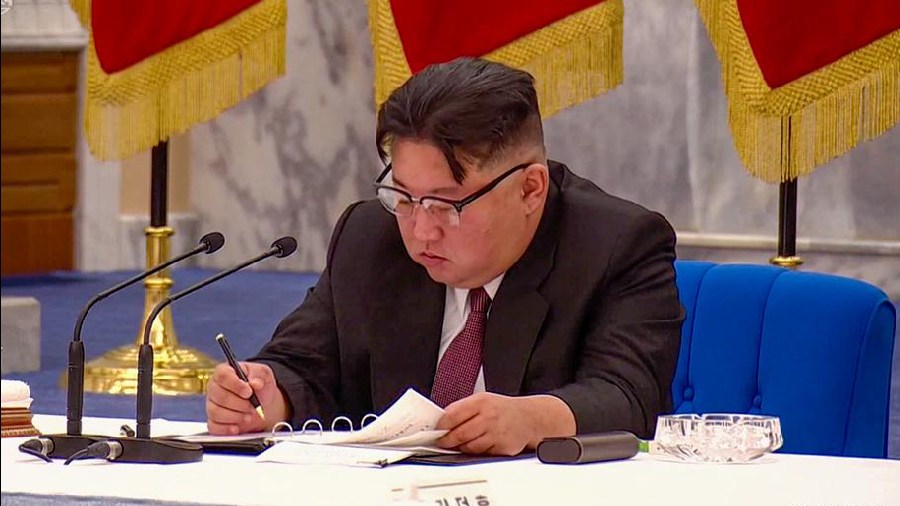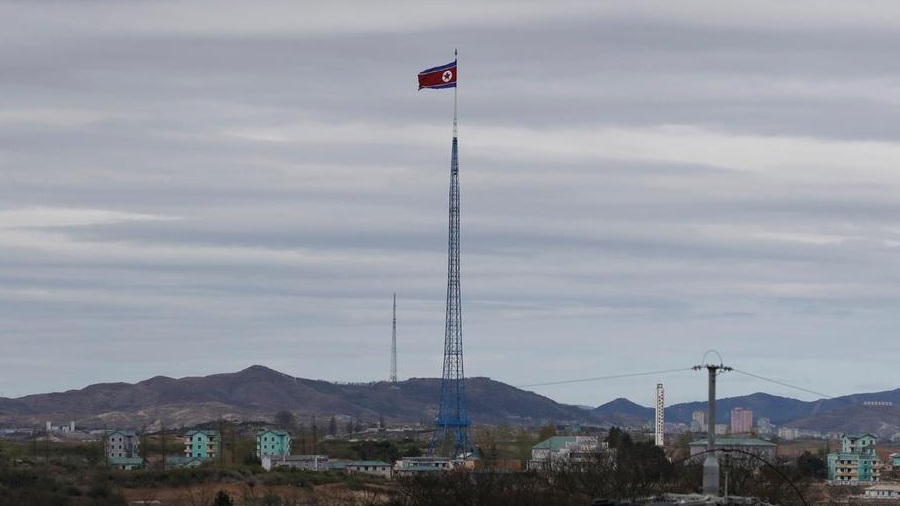North Korea fired three short-range ballistic missiles toward its eastern waters on Saturday, ending a year of unprecedented missile tests with yet another one.
South Korea's Joint Chiefs of Staff said in a statement it had identified the three launches on Saturday morning coming from a location south of Pyongyang.
According to the military, the missiles were fired at around 8 a.m. (2300 GMT Friday) and traveled around 350 kilometers (217 miles) before crashing into the Sea of Japan, also known as the East Sea.
South Korea's military condemned the launches as a "grave provocation that undermines peace and stability on the Korean Peninsula as well as the international community."
The statement also called it a violation UN Security Council resolution, which prohibits North Korea from testing ballistic missiles. Some ballistic missiles are capable of carrying nuclear warheads.
Tensions simmer in the Korean peninsula
The North Korean launches come a day after South Korea tested a solid-fueled rocket. Seoul intends to utilize the rocket to launch its first spy satellite in the coming years.
Getting its own satellite for military spying is also a priority for North Korea.
Tensions were already soaring in the Korean peninsula when the North sent five drones that flew above various South Korean cities, including Seoul, on Monday.
South Korea scrambled fighter jets and attack helicopters in response. Military officials later apologized for their inability to shoot down the drones.
A day later, Seoul sent three of its own drones across the border in retaliation.
South Korean president takes tough stance
South Korean President Yoon Suk-yeol strongly criticized the military's handling of the incursions.
President Yoon's conservative government has promised a tougher stance toward the North since coming to power in May.
He recently said that North Korea is not a source of fear because of its nuclear weapons, and its provocations must be met with retaliation.
This comes as full-scale joint military exercises between the US and South Korea resumed this year under Yoon.
Pyongyang responded by saying that its recent missile launches were in retaliation to the joint military exercises, which the isolated country called a rehearsal for invasion.
Pyongyang outlines goals
North Korean leader Kim Jong Un and other senior party leaders are at a major party meeting in Pyongyang currently detailing their policy objectives for 2023. Key areas include diplomacy, security, and the economy in the coming year.
Kim stated earlier this year that he wanted his nation to possess the most powerful nuclear arsenal and declared that the North was an "irreversible" nuclear state.
In recent months, experts have warned that Pyongyang might be planning to conduct its seventh nuclear bomb test.











